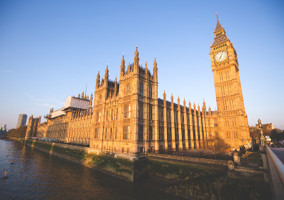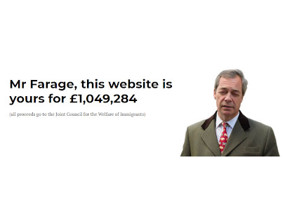After several weeks of the general election campaign and with just over two weeks until polling day, this seems like an opportune moment to reflect on what we have heard, seen and understood so far. It is also a moment to consider what kind of society, economy and environment we want; and which would be good for our communities and in the case of charities those they work with and for.
At the beginning of the campaign I wrote for Civil Society on why charities, whilst avoiding being partisan, should engage with the general election.
In that article I wrote: “I believe that to be credible, charities and wider civil society groups should principally push for policies that will create public benefit and specifically, for each organisation, benefits for their beneficiaries - ahead of institutional self-interests. In other words, it will be best to focus on societal, environmental and economic issues ahead of charity regulation and even funding.”
We have witnessed some powerful interventions from some charities which is to be welcomed. Unfortunately many have chosen to be silent and others, including some of the national sector bodies, have advocated policies and measures concerning charities rather more than communities. Those bodies that have only made submissions on matters relating to charity law, regulation, funding and similar inwardly focused issues are doing the wider sector and the wider community a disservice.
There is still time for others to make their views known, to challenge the politicians and the political parties and to set out their vision for society, the economy and the environment both in this country and globally.
I would expect the vast majority charities, given their geneses and their missions, to be promoting greater equality – greater absolute equality and greater equality of opportunity; more investment in and expenditure on public services and an end to austerity; a more inclusive and fairer economy; an end to precarious employment; measures to address homelessness; serious responses to the climate emergency; and much more.
I would naturally not expect any charity to address all these issues. I recognise and respect that all charities whilst having views and seeking to change public policy must always avoid being partisan.
As I argued in my previous article, this should not lead them to be timid when it comes to challenging the causes of the symptom that they are concerned about. For example, a charity involved with food banks and supporting families in poverty should also challenge policies such as the five week delay on Universal Credit which are adding to demands for their services, or zero hours employment contracts and other cause which are creating in-work poverty. In some cases, charities will wish to argue for structural and system change across the economy in order to secure the fulfilment of their missions.
Similar examples will exist for all charities and their field of interest and expertise.
However, as charities, charity leaders and social activists review the parties’ manifestos and commitments, they may also take time to reflect both on the underlying principles, ethos, values and behaviours of those parties and their personnel. Again charities must be very careful to avoid any public statements – inexplicit or explicit – about individual parties or their leaders, but that should nor prevent from calling them out on policy and advocating ideas to them.
I believe that with two weeks of campaigning remaining, this a good moment for charities, charity leaders – executive and trustee – and social activists to pause and ask themselves three questions:
- In five and ten years’ time, what kind of society, economy and environment do we wish to live in and what would be best for those our charity works with and/or represents?
- What government action and policy agenda would more likely lead to the kind of society, economy and environment we desire on behalf of those our charity works with and/or represents?
- What might my charity or I as a social activist do the influence and shape future government policy between now and 12 December and afterwards?
In this election there are some stark choices; there are some hard choices; and there will inevitably be some trade offs.
Some of these will be easier for individual social activists than they will be for charities, but there is no reason why charities should not have a clear vision not only for their on organisation but also for the country and wider world.
Whatever the result in two weeks’ time, the advocacy role of charities and social activists will be as important as it has ever been.
Let’s be bold and let’s speak.
|
Related Articles











